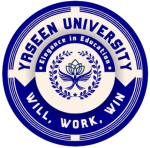Outline
- Introduction to Study Skills
- What are Study Skills?
- Importance of Study Skills in Academic Success
- Understanding Your Learning Style
- Types of Learning Styles
- How to Identify Your Learning Style
- Effective Time Management
- Prioritizing Tasks
- Creating a Study Schedule
- Goal Setting for Academic Achievement
- The SMART Goals Framework
- Short-term vs. Long-term Goals
- Active Reading Strategies
- Skimming and Scanning Techniques
- Annotating and Highlighting
- Note-Taking Techniques
- The Cornell Method
- Mind Mapping
- Outlining and Paraphrasing
- Memory Improvement Techniques
- The Spaced Repetition System (SRS)
- Mnemonics and Memory Aids
- Effective Study Environments
- Creating a Distraction-Free Zone
- The Role of Lighting and Ergonomics
- Utilizing Study Resources
- Online Tools and Apps
- Library and Academic Support Services
- Enhancing Concentration and Focus
- Techniques to Improve Concentration
- Overcoming Procrastination
- Test Preparation Strategies
- Practice Tests and Flashcards
- Managing Test Anxiety
- Collaboration and Group Study
- Benefits of Group Study
- How to Organize Effective Study Groups
- Critical Thinking and Problem-Solving
- Developing Analytical Skills
- Applying Critical Thinking in Studies
- Balancing Study and Personal Life
- Importance of Breaks and Relaxation
- Maintaining a Healthy Lifestyle
- Conclusion
- Recap of Key Points
- Encouragement for Continuous Improvement
Mastering Study Skills: A Comprehensive Guide to Academic Success
Introduction to Study Skills
What are Study Skills?
Study skills are the techniques and strategies that students use to manage their learning process effectively. These skills encompass a range of practices, from organizing notes to managing time, all aimed at enhancing one’s ability to absorb and retain information. Think of them as the toolkit you need to navigate your academic journey.
Importance of Study Skills in Academic Success
Why are study skills so crucial? Simply put, they are the backbone of academic success. Good study habits lead to better understanding, retention, and application of knowledge. They help you stay organized, reduce stress, and ultimately achieve your academic goals.
Understanding Your Learning Style
Types of Learning Styles
Everyone has a unique way of learning, and understanding your learning style is the first step towards effective studying. The main types of learning styles are:
- Visual Learners: Prefer to see information through charts, diagrams, and written directions.
- Auditory Learners: Learn best through listening to lectures, discussions, and audio materials.
- Kinesthetic Learners: Prefer hands-on experiences and learning through doing.
How to Identify Your Learning Style
Identifying your learning style can significantly impact how you approach studying. Reflect on your past learning experiences. Did you excel when you could visualize the material, or did you retain more when you heard it aloud? Various online assessments can also help you determine your learning style.
Effective Time Management
Prioritizing Tasks
Time management is often the biggest challenge for students. The key is prioritizing tasks. Start by listing everything you need to do and rank them by importance and deadlines. This helps you focus on what’s most urgent and prevents last-minute cramming.
Creating a Study Schedule
Once you’ve prioritized your tasks, it’s time to create a study schedule. Break down your study sessions into manageable chunks, and allocate specific times for each subject. Don’t forget to include breaks! This not only helps in keeping your mind fresh but also improves productivity.
Goal Setting for Academic Achievement
The SMART Goals Framework
Setting goals is a powerful way to motivate yourself. The SMART framework (Specific, Measurable, Achievable, Relevant, Time-bound) is a popular method to set clear and attainable goals. For example, instead of saying, “I want to get better at math,” aim for, “I want to improve my math grade by 10% within the next three months.”
Short-term vs. Long-term Goals
Balancing short-term and long-term goals is essential. Short-term goals are the steps that lead to achieving long-term objectives. For instance, completing a chapter each week can be a short-term goal, while acing the final exam is a long-term goal.
Active Reading Strategies
Skimming and Scanning Techniques
Active reading is not just about reading every word on the page; it’s about understanding and retaining the material. Skimming helps you get the gist of the content quickly, while scanning allows you to find specific information fast.
Annotating and Highlighting
Annotation and highlighting are powerful tools for active reading. They help you engage with the text, making it easier to review later. Highlight key concepts and make notes in the margins to summarize points or ask questions.
Note-Taking Techniques
The Cornell Method
The Cornell Method is a structured approach to note-taking. It involves dividing your paper into three sections: cues, notes, and summary. This format not only helps you organize information but also makes it easier to review.
Mind Mapping
Mind mapping is a visual technique that allows you to organize information in a non-linear way. It’s particularly useful for brainstorming and connecting different concepts. Start with a central idea and branch out into related topics.
Outlining and Paraphrasing
Outlining helps you structure your notes in a logical order, while paraphrasing ensures you understand the material by putting it in your own words. Both techniques are essential for effective studying and long-term retention.
Memory Improvement Techniques
The Spaced Repetition System (SRS)
Spaced repetition is a method of reviewing material at increasing intervals. It’s based on the principle that information is better retained when it’s reviewed just as you’re about to forget it. This technique is particularly effective for vocabulary and factual knowledge.
Mnemonics and Memory Aids
Mnemonics are memory aids that help you recall information through association. For example, to remember the order of the planets, you might use the phrase, “My Very Educated Mother Just Served Us Noodles.” These tools make learning more engaging and memorable.
Effective Study Environments
Creating a Distraction-Free Zone
Your study environment plays a crucial role in how well you can concentrate. Choose a quiet, comfortable space where you can focus without interruptions. Keep your study area organized and free of distractions like your phone or TV.
The Role of Lighting and Ergonomics
Proper lighting and ergonomics are often overlooked but essential components of a productive study space. Natural light is best, but if that’s not an option, ensure your space is well-lit. Ergonomics, like a comfortable chair and desk height, prevent physical discomfort during long study sessions.
Utilizing Study Resources
Online Tools and Apps
In today’s digital age, there are countless online tools and apps designed to enhance your study process. Apps like Quizlet for flashcards, Evernote for note-taking, and Pomodoro timers for focused study sessions can be incredibly helpful.
Library and Academic Support Services
Don’t overlook traditional resources like libraries and academic support centers. Libraries provide access to a wealth of information, while support centers offer tutoring and workshops that can help you improve your study skills.
Enhancing Concentration and Focus
Techniques to Improve Concentration
Improving concentration is all about training your brain. Techniques like mindfulness meditation, setting specific goals, and taking regular breaks can help you maintain focus during your study sessions.
Overcoming Procrastination
Procrastination is a common hurdle for students. The best way to overcome it is by breaking tasks into smaller, more manageable steps and rewarding yourself for completing them. Also, try to identify what triggers your procrastination and address those issues directly.
Test Preparation Strategies
Practice Tests and Flashcards
Practice tests and flashcards are time-tested methods for exam preparation. They not only help you review the material but also get you accustomed to the format of the questions, which can reduce test anxiety.
Managing Test Anxiety
Test anxiety can hinder your performance, but there are ways to manage it. Practice relaxation techniques like deep breathing or visualization. Being well-prepared and confident in your knowledge also helps in reducing anxiety.
Collaboration and Group Study
Benefits of Group Study
Group study sessions can be highly beneficial if done correctly. They provide a platform for discussing complex topics, sharing different perspectives, and teaching each other. Teaching is often the best way to learn.
How to Organize Effective Study Groups
To make the most out of group study, it’s essential to have a clear agenda and stay on topic. Rotate who leads the session and ensure everyone is actively participating. This structure helps keep the group focused and productive.
Critical Thinking and Problem-Solving
Developing Analytical Skills
Critical thinking is crucial for academic success. It involves analyzing information, questioning assumptions, and making informed decisions. You can develop these skills by engaging in debates, writing essays, and solving complex problems.
Applying Critical Thinking in Studies
Incorporate critical thinking into your studies by questioning the material you’re learning. Ask yourself how and why things work, and try to apply concepts to real-world situations. This approach deepens your understanding and retention.
Balancing Study and Personal Life
Importance of Breaks and Relaxation
It’s essential to balance study time with relaxation. Taking regular breaks during study sessions helps your brain process information and prevents burnout. Engage in activities you enjoy to recharge your energy.
Maintaining a Healthy Lifestyle
A healthy lifestyle supports your academic efforts. Ensure you’re getting enough sleep, eating well, and exercising regularly. These factors contribute to better focus, memory, and overall well-being.
Conclusion
Mastering study skills is a journey that requires patience, practice, and persistence. By understanding your learning style, managing your time effectively, setting achievable goals, and using the right techniques, you can significantly enhance your academic performance. Remember, the key to success is continuous improvement and adapting your strategies as you grow.
FAQs
- What is the most effective study technique?
- The most effective study technique varies depending on the individual, but active learning methods like spaced repetition, active reading, and regular review sessions are generally effective for most learners.
- How can I improve my concentration while studying?
- Improving concentration involves creating a distraction-free environment, breaking study sessions into manageable chunks, and using techniques like mindfulness and setting specific study goals.
- What should I do if I’m struggling with a subject?
- If you’re struggling with a subject, seek help early. Use resources like tutoring, study groups, and online tools. Breaking down complex topics into smaller, manageable parts can also make them easier to understand.
- How often should I take breaks during study sessions?
- A common recommendation is the Pomodoro Technique, which suggests taking a 5-minute break after every 25 minutes of focused study, with a longer break after four sessions.
- Can group study be more effective than studying alone?
- Group study can be more effective for some students, especially when discussing and teaching each other complex concepts. However, it’s important to ensure that the group stays focused and productive.


